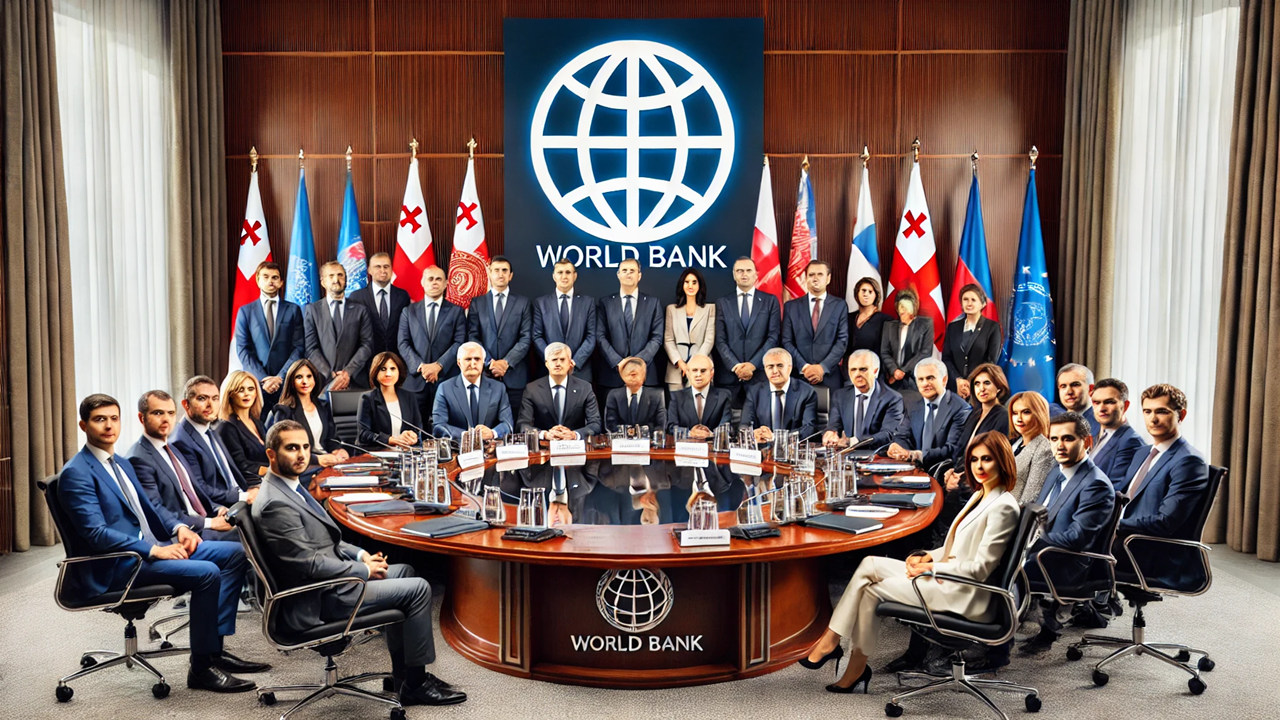World Bank’s Growing Impact: How Trust and Engagement are Shaping Georgia’s Development
The "FY 2024 Georgia Country Opinion Survey Report" by the World Bank Group reveals increased trust and familiarity with the institution among Georgian stakeholders. The survey highlights key development areas such as education, regional growth, and private sector support, while recommending improved communication strategies and tailored local engagement to boost impact.

In a recent survey conducted by the World Bank Group (WBG) in Georgia, the institution emerged as the most trusted international organization in the country. The "FY 2024 Georgia Country Opinion Survey Report" provides insights into how the World Bank is perceived by key stakeholders, including government officials, civil society representatives, academia, the private sector, and the media. The findings reveal a significant rise in familiarity and trust, accompanied by stakeholders’ recommendations on enhancing the Bank’s role in supporting Georgia’s development.
The survey carried out between November 2023 and January 2024, engaged 226 respondents, predominantly based in Tbilisi. With a response rate of 26%, the report indicates a growing recognition of the World Bank’s efforts to assist Georgia in its economic and social development. This article will explore the key areas of support, performance indicators, and future strategies suggested by stakeholders to strengthen the WBG’s role in Georgia.
Rising Trust and Performance in Development
One of the most striking findings in the FY 2024 report is the World Bank’s position as the most trusted international organization in Georgia, surpassing even the United Nations and the International Monetary Fund (IMF). Respondents expressed confidence in the World Bank’s ability to align its initiatives with Georgia’s development priorities and rated it highly for its effectiveness in helping the country achieve tangible results.
The increase in trust and familiarity is noteworthy compared to previous years. Respondents who have collaborated directly with the WBG reported higher levels of familiarity (mean familiarity of 8.6 out of 10) compared to those without such engagement (mean familiarity of 6.3). This suggests that direct involvement with the WBG enhances stakeholders’ perceptions of the organization’s value and impact.
Key performance indicators such as shaping development policy, supporting poverty reduction, and being relevant to the country’s development were all rated positively, with government institutions showing the most favorable perceptions. In contrast, the private sector and local government stakeholders reflected comparatively lower trust levels, signaling areas where the WBG may need to focus its communication and outreach efforts.
Focus Areas: Education, Regional Development, and Private Sector
The survey findings underscore the importance of the World Bank’s ongoing focus on education, which remains a top priority for stakeholders. Regional development and private sector support followed closely as key areas where the WBG’s involvement is considered crucial. Stakeholders also pointed to the growing need for more targeted efforts in addressing climate change, infrastructure development, and agricultural support.
Respondents highlighted the need for the WBG to consider Georgia’s unique local context when planning and implementing projects. Recommendations included a stronger emphasis on digital infrastructure, skills development, and regional coordination to ensure sustainable development across the country. There is also a growing call for more intensive engagement with the private sector, which many see as vital for fostering economic resilience and growth.
Enhancing Communication and Outreach
While the WBG is viewed positively, the report suggests that communication and outreach strategies could benefit from refinement. Respondents expressed a preference for more direct and personal engagement, such as face-to-face workshops, seminars, and events. Only a small percentage favored social media and newsletters as effective communication channels.
To improve its engagement, stakeholders recommended that the World Bank enhance the visibility of its projects and be more transparent about its activities and achievements. Many felt that a better understanding of the WBG’s work among the general public would lead to stronger partnerships and increased support for development initiatives. Direct and continuous engagement with communities and local governments was seen as a way to boost both the relevance and effectiveness of WBG’s interventions.
Path Forward: Tailoring Strategies for Greater Impact
Based on the feedback received, the World Bank has several pathways to strengthen its impact in Georgia. These include expanding its engagement with local communities, increasing collaboration with the private sector, and aligning its projects more closely with the country’s economic and social realities. Stakeholders emphasized the importance of using local expertise to adapt global strategies to the Georgian context, ensuring that initiatives are not only well-designed but also practically applicable.
The survey findings also show that 64% of respondents have used the WBG’s knowledge products, such as reports and data analysis, and expressed high satisfaction with the quality of these resources. This suggests that the WBG’s role as a knowledge provider is highly valued, and expanding these efforts could further boost its perceived value in the region.
Going forward, there is a strong recommendation for the WBG to maintain its focus on areas that directly contribute to long-term development, such as education, infrastructure, and private sector growth, while also integrating newer areas of concern like climate change and digital transformation.
- FIRST PUBLISHED IN:
- Devdiscourse










